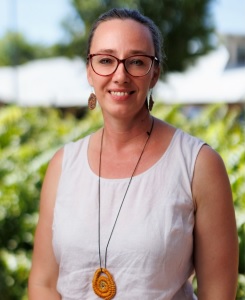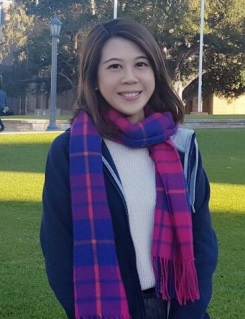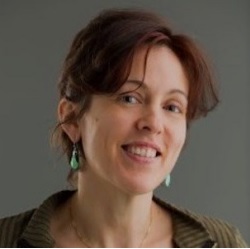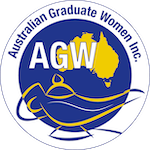CONGRATULATE OUR NEW AGW CENTENARY SCHOLARS!
Emeritus Professor Jane Scott, Australian Graduate Women Fellowships Officer and AGW President Professor Jaya Dantas are delighted to announce the winners of the Centenary Scholarships. We send Emily Bowden, Tanya Kwee and Alison Quigley all the best wishes for their future studies and careers.
Emily Bowden

Emily Bowden is an experienced midwife and has extensive experience working with women from culturally and linguistically diverse populations, including several years in Cambodia, and more recently with Australian First Nations women from remote communities. She has worked in the Top End of the Northern Territory, predominantly with Australian First Nations women receiving maternal health services, for 7 years. She has a strong interest in respectful maternity care and has chosen this as the topic of her PhD studies.
Her project is seeking to develop an interactive audio-visual survey, using an avatar and story-telling, in four First Nations languages, to measure respectful maternity care in 200 women. The results from this survey will be compared to determine if the babies of the women who felt they were treated with more respect during pregnancy are healthier at 12 months of age than the babies of the mothers who felt they were treated without as much respect. This will privilege the voices of Australian First Nations women in a culturally safe way, with the anticipated outcome being that changes will be made to the way maternity care is provided to First Nations women in the Top End of the Northern Territory.
context.
Tanya Kwee

Tanya Kwee is a PhD candidate at the University of New South Wales, Australia, with over 15 years of experience working in various educational settings. Her research interests span across teacher education and professional development, language and literature, education for sustainability and mentoring. She has published her work in academic journals, book chapters, and conference proceedings. Inspired by the United Nations’ Global Partnership Summit in New York, Tanya is motivated to contribute to achieving Sustainable Development Goal 5, which aims to empower women with fair opportunities and participation in professional industries. Her proposed project is developing and implementing a peer mentoring programme for female immigrant teachers.
Through building a supportive network at the community level, Tanya believes that female immigrant teachers can empower each other by sharing professional knowledge, career advice, and strategies for navigating school and education policies. Through her proposed peer mentoring programme for female immigrant teachers, she hopes to foster collaboration and support to facilitate their career progression and leadership potential in the challenging teaching environment to create a strong, more diverse and inclusive teaching force.
Alison Quigley

Alison Quigley
Alison Quigley was a former gymnast who later worked as a journalist, sailor, and teacher of English as foreign language. In her late twenties she undertook a Bachelor of Arts/Law, followed by a Masters of Philosophy at the University of
Queensland. In 2020 Athlete A triggered survivors to speak out about abuse, and she went public with her story about the child sexual abuse she’d suffered in gymnastics and the conviction against her coach-perpetrator. She contributed to the
Australian Human Rights Commission (AHRC)’s Change the Routine published in May 2021, joined the international organisation Gymnasts for Change, and cofounded Athlete Rights Australia. In 2022 she was formally accepted onto the doctoral program at Queensland University of Technology with her research proposal ‘Are We Safer Now?’.
Her doctoral thesis analyses the historical progress of child safe policies in Australian gymnastics, a sport predominately comprising female athletes aged under twelve. She uses public health and regulatory theories to ascertain if safeguarding
policies are congruent with the latest understandings in this field. The fellowship assists with archival investigations that will deepen understanding of safeguarding policy development and inform future directions to keep girls and women safer in sport.
